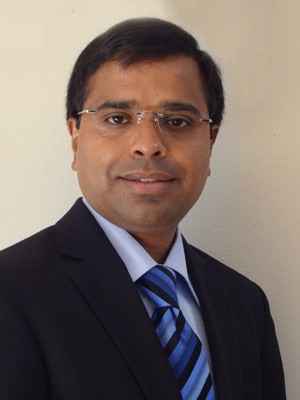
Ravishankar Gundlapalli: Indian engineers lag in soft skills
The founder and CEO of MentorCloud, an online social platform for mentoring, talks about how the diaspora can nurture young entrepreneurs
Ravishankar Gundlapalli is the founder and CEO of MentorCloud, an online social platform for mentoring. MentorCloud recently entered into a partnership with the US Department of State to enable members of the US diaspora to become mentors to students and young entrepreneurs in their countries of origin. A Silicon Valley-based entrepreneur who previously worked in the automotive and aerospace industries, Gundlapalli led the design and implementation of supply chain solutions for the Boeing 787 Dreamliner. An engineer – he graduated with a degree in naval engineering from IIT (Chennai) and earned a PhD in fluid mechanics from the University of Michigan – he mentors young engineers to develop soft skills and achieve career milestones. In an interview with Forbes India, Gundlapalli talks about how the diaspora can be tapped to contribute toward skills development in countries of origin.
Q: What is MentorCloud’s objective?
A. MentorCloud’s vision is to connect people and allow them to share their expertise with each other. We started by connecting university alumni with students. And then the State Department initiative is to connect alumni of countries – in the US, there are 60 million people from all over the world and we need to connect them to people back in their countries.
Q: What is the nature of your partnership with the US State Department?
A. The State Department came to us and asked if we could do by country what we are doing with universities and enterprises. We’ve already started working with El Salvador, for example. The goal is to connect El Salvadorians here in the US [there are 1.6 million people from El Salvador as per the 2010 US Census] – to at least ten or twelve people in the country.
Q: How does MentorCloud work?
A. We’ve been called the Facebook of mentorship. You can form groups, you can have conversations and you can share videos. It’s a community for sharing expertise and insights – how to start a business, how to get funding, how get your first job, how to get promoted. Soft skills will be a key focus because when I conduct workshops in India, Indian engineers ask to be taught soft skills. I find that while they are extremely bright, they don’t know how to present themselves. They may not always speak good English. But they’re very bright and very ambitious. So we need to teach them how to present their strengths. The technical expertise is there but the functional expertise is needed.
Q: How many US-based mentors of Indian origin have signed up so far?
A. We have about 2,000 people in the US who will be tapped once we expose MentorCloud to more Indian universities and organizations. We’ll have a broad spectrum of volunteers; we want to include doctors, for instance. We are creating different verticals. TiE [The Indus Entrepreneurs] is an excellent example and we are talking to them. Basically, all of us Indians in the US can mentor students and young entrepreneurs in India.
Q: Are Indian organizations receptive?
A. They’ve been very positive. I spoke to several executives and was just contacted by Dr. Abdul Kalam’s [former President of India] group because he wants to launch an initiative to help young entrepreneurs in India. The Indian Institute of Science is our client. They’re using our platform to connect alumni and students. India’s DRDO [Defence Research and Development Organization] and BEL [Bharat Electronics Ltd] are sponsors of this initiative. They really like what we’re doing and it’s a great way for the industry to start mentoring students in the academic world. The organizations pay for it but it’s free for the recipients.
Q: What is the opportunity?
A. At the end of the day, it’s about connecting people. Connecting industry to academia, alumni to students. The opportunities are huge. India will have 500 million young people under the age of 25 and the 20 million Indians around the world are an asset that the country can tap into. If each of us mentors two students, we can change India ground up.





